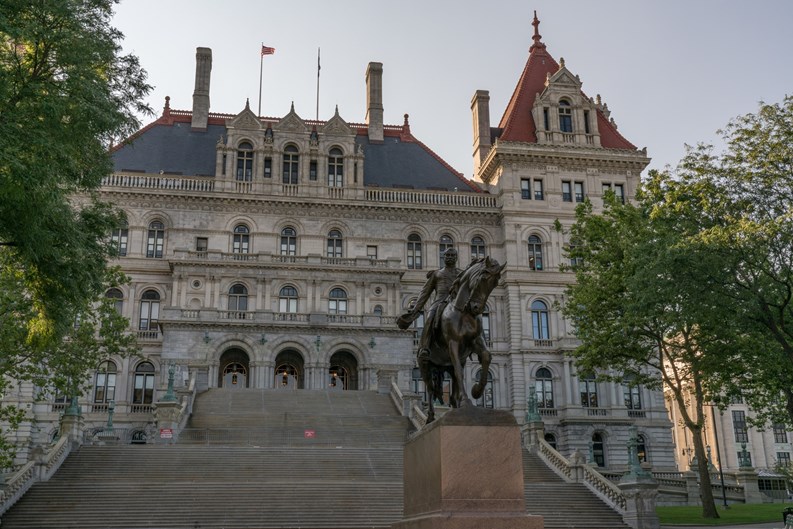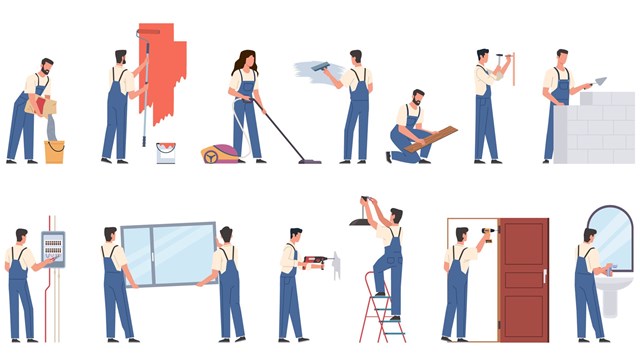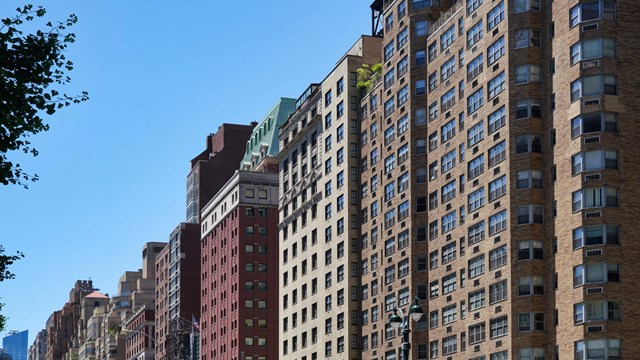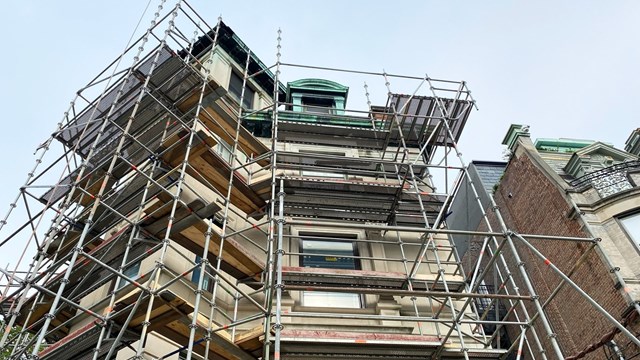A new bill is under consideration that will potentially change the way access agreements are struck between neighboring property owners for the purpose of completing required Local Law work. State Senate Bill S1305/Assembly Bill A1321 passed the Senate 59-1 on March 8, and is now before the Assembly Judiciary Committee. It remains to be seen whether it will be voted on in this legislative session, or what the Governor will do with it when and if it’s passed.
Why is it Needed?
“The legislation establishes a framework for determining the terms under which an adjoining property owner is required to give access to an owner making improvements or repairs to their own property,” says William McCracken, a partner with Ganfer Shore Leeds & Zauderer, a law firm based in New York City. “That is, property owners from time to time have to make improvements to their building (typically, but not exclusively, to do Local Law 11 façade repairs) which requires access to the neighboring building either to protect that building, do the actual work, or both. However, you can’t just go onto the neighboring property without permission – that’s trespassing – so you need a license.”
Normally - and ideally - the parties involved negotiate an access agreement. However, because the adjoining property owner has no incentive to grant the license, the negotiations can drag on for months and months, and the terms can be onerous.
According to McCracken, “There is an option to go to court and get a court-ordered license under Section 881 of the Real Property Actions and Proceedings Law, which says, ‘upon such terms as justice requires.’ Under existing law, what ‘justice requires’ in a particular case is not always clear, and makes a court-ordered license an inefficient and unpredictable option. Moreover, with the court system being bogged down, an 881 proceeding can be expensive and time-consuming.”
The Reality
The reality of the situation is that for a property owner seeking a license, there are often few good options other than just agreeing to the terms demanded by the adjoining property owner. That’s not good for anyone, especially common interest communities like co-ops and condos, where every extra minute of legal work literally costs money - money the community likely hasn’t budgeted for.
“The new legislation,” explains McCracken, “amends Section 881 and is intended to make the court-ordered license more streamlined and predictable. It also imposes standards of commercial reasonableness in granting or refusing a license, and gives the court the express authority to award attorneys’ fees to either party upon a finding that the other party acted in bad faith or engaged in misconduct in negotiating for the license.”
Under existing law, the party seeking access has, as a practical matter, very little leverage in bringing the adjoining property owner to the table, much less securing reasonable terms for the license. “By adding some teeth to the Section 881 remedy, the hope is that parties will enter into more reasonable license terms in a more reasonable period of time,” says McCracken.
Why it’s Good for Condos & Co-ops
Co-ops and condos are subject to the same building improvement requirements as any other property owner. Façade projects are expensive and time consuming under the best of circumstances, and a delay of six, 12, or even 18 months trying to get access to the neighboring property can be ruinous to a building community’s budget. Any measure that makes the process more predictable, less expensive, and more fair should be welcomed by boards and residents alike. Hopefully with its passage, this bill will ease some of the present and growing pressure on shared interest communities to faithfully abide by the local laws and requirements imposed upon them by local and state governments.










Leave a Comment